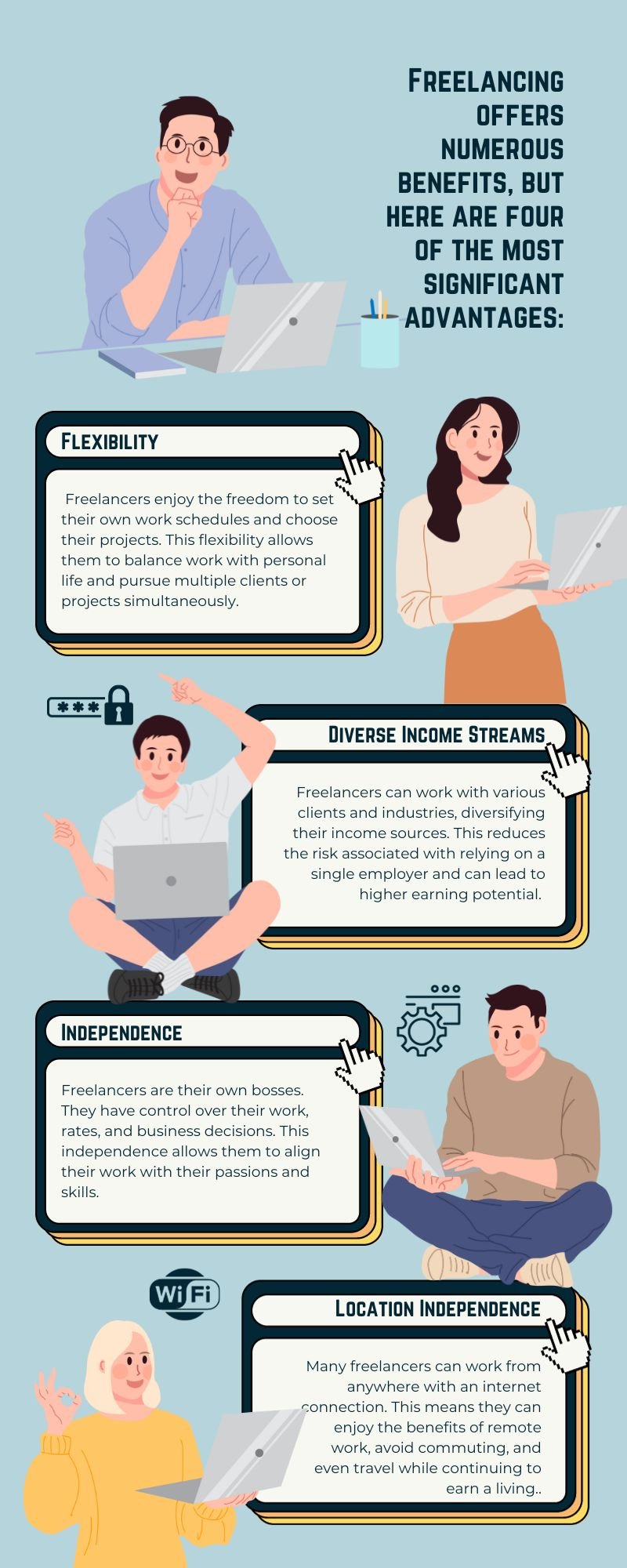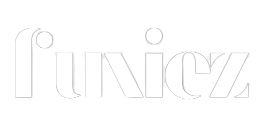Introduction
Freelancing has become a popular career choice in today’s job market, with a growing number of professionals turning to it as a means of employment. In fact, according to a survey by the freelance platform Upwork, 60 million Americans performed freelance work in the past 12 months, representing 39% of the U.S. workforce, an all-time high.
This article aims to provide a comprehensive guide to freelancing, covering everything from its definition to the pros and cons, and tips for success in the gig economy. It is important for individuals to understand the ins and outs of freelancing before pursuing it as a career, as it comes with its own unique set of challenges and opportunities.

Through research and statistics, we will objectively explore the world of freelancing and provide insights on the latest trends and developments in this field. We will also include examples and case studies to illustrate concepts and avoid using technical jargon to ensure that this guide is accessible to a general audience.
What is Freelancing?
Freelancing is a form of self-employment where individuals offer their skills and services to clients without committing to full-time employment. Unlike traditional jobs, freelancers have the freedom to choose their projects, clients, and work schedule.
The gig economy, which is made up of freelancers, is rapidly growing. In 2020, 59 million Americans were involved in freelancing, representing over a third of the US workforce.
One of the main advantages of freelancing is the flexibility it offers. Freelancers have the autonomy to decide when, where, and how they work, making it an attractive option for those who value work-life balance. Source: Freelancing 101
The types of freelance work available are diverse and span across various industries. Some popular categories include development and IT, marketing, writing and editing, and project management. (Source: what is freelancing
Freelancing also has its downsides, such as potential isolation and the responsibility of managing one’s own finances and contracts. However, with determination, self-motivation, and marketable skills, freelancing can be a successful and fulfilling career choice.
As the gig economy continues to grow, it’s important to stay up-to-date on the latest trends and developments in the field of freelancing. With the right skills and mindset, freelancing can offer a rewarding and flexible career path.
Pros and Cons of Freelancing
Freelancing has become increasingly popular in recent years, offering individuals the opportunity to work independently and on their own terms. However, like any career path, freelancing has its own set of advantages and challenges. In this section, we will discuss the pros and cons of freelancing to help you make an informed decision about whether it is the right path for you.
Advantages of Freelancing
- Flexible Schedule: One of the biggest advantages of freelancing is the ability to have a flexible schedule. Unlike traditional jobs, freelancers have the freedom to choose their own working hours and can often work from anywhere with an internet connection.
- Increased Control: As a freelancer, you have complete control over your workload, clients, and the services you offer. This allows you to focus on projects that align with your interests and skills, leading to a more fulfilling career.
- Potential for Higher Earnings: Freelancers have the potential to earn more than traditional employees. With the ability to take on multiple clients and adjust rates as you gain experience, freelancing can lead to a higher income.
Challenges of Freelancing
- Inconsistent Income: One of the biggest challenges of freelancing is the inconsistent income. Unlike a traditional job with a steady paycheck, freelancers may experience periods of high and low income, making it important to budget and save accordingly.
- Lack of Benefits: Freelancers do not receive benefits such as health insurance, retirement plans, or paid time off. This means that freelancers must cover these expenses on their own.
It is important to carefully consider your personal preferences and skills when weighing the pros and cons of freelancing. While the flexibility and potential for higher earnings may be appealing, the inconsistent income and lack of benefits may not be suitable for everyone. Ultimately, the decision to become a freelancer should be based on your individual goals and needs.
Sources: FlexJobs, Half Half Travel, Wishup
The Logistics of Freelancing
Freelancing requires more than just working on projects. As a freelancer, you are responsible for managing various aspects of your business. This includes finding clients, setting rates, managing finances, and marketing yourself effectively.
1. Finding Clients:
Freelancers can find clients through a variety of sources such as freelance websites, networking, and referrals. It’s important to have a professional online presence and showcase your skills to attract potential clients.
2. Setting Rates:
One of the perks of freelancing is the ability to set your own rates. However, it’s important to research industry standards and consider your skills and experience when determining your rates. You can also negotiate rates with clients based on the scope of work and project requirements.
3. Managing Finances:
As a freelancer, you are responsible for managing your own finances. This includes tracking income and expenses, invoicing clients, and filing taxes. It’s important to keep detailed records and consult a tax professional to ensure compliance with tax laws.
4. Marketing Yourself:
To stand out in the competitive freelance market, it’s important to market yourself effectively. This can include creating a professional website, utilizing social media to showcase your work, and networking with other freelancers and potential clients.
Overall, freelancing requires a combination of skills beyond just completing projects. By understanding the logistics of freelancing and effectively managing them, you can build a successful and sustainable freelance career.
Understanding Freelance Contracts and Terms
When it comes to freelancing, having a contract with your clients is crucial. A contract outlines the terms and conditions of your working relationship, providing protection for both parties involved. It also sets clear expectations and helps avoid conflicts down the road.
Some common contract terms to include are scope of work, payment terms, and project timeline. The scope of work specifies the details of the project, such as deliverables, deadlines, and revisions. Payment terms cover how and when you will be paid, while the project timeline outlines the expected timeline for completion.
Communication is also key in ensuring successful projects. Clearly outlining expectations and having open communication can help avoid misunderstandings and conflicts. According to a study, 57% of freelancers say that clear communication is the most important factor in a successful project.
Taxes and Insurance for Freelancers
As a freelancer, it’s important to understand the differences between taxes for traditional employees and freelancers. Unlike traditional employees, freelancers are considered self-employed and are responsible for paying self-employment taxes on top of income taxes. This means that freelancers must keep track of their income and expenses in order to accurately file their taxes and potentially claim deductions.
According to Statista, there were 59 million freelancers in 2020, making it a popular career choice. However, freelancing also comes with its challenges, including the need to handle taxes and insurance on your own.
One of the key responsibilities for freelancers is to keep track of their income and expenses. This includes saving all receipts and invoices, as well as using accounting software to track finances. This will not only make it easier to file taxes, but also help in claiming deductions and reducing tax liability.
When it comes to health insurance and other benefits, freelancers have a few options. Some may choose to purchase individual health insurance plans, while others may join a spouse’s employer-sponsored plan. Additionally, freelancers can also consider setting up a retirement plan, such as a solo 401(k) or a SEP IRA, to save for the future and reduce tax liability.
It’s important for freelancers to have a basic understanding of taxes and insurance in order to succeed in the gig economy. By keeping accurate records and exploring different options for health insurance and retirement plans, freelancers can effectively manage their taxes and secure their financial future.
Sources: Statista
Developing and Utilizing Freelance Skills
The gig economy has opened up a world of opportunities for freelancers to showcase their skills and earn a living. As companies seek to cut costs and supplement their workforce, the demand for freelancers with specialized skills has skyrocketed. In this section, we will discuss the top skills that are in high demand in the freelance market and provide tips for developing and improving these skills.
1. Graphic Design
Graphic design is a highly sought-after skill in the freelance market. Companies and individuals often require the services of graphic designers to create visually appealing content for their websites, social media, and marketing materials. To excel in this field, it is essential to have a strong understanding of design principles, typography, and design software. You can develop your graphic design skills through online courses or by networking with other freelance designers.
2. Social Media Management
In today’s digital age, businesses rely heavily on social media to reach and engage with their target audience. As a result, the demand for freelance social media managers has increased. To succeed in this field, you must have a deep understanding of various social media platforms, content creation, and community management. You can enhance your skills by taking online courses and staying updated with the latest social media trends.
3. Web Development
The demand for web developers is on the rise as businesses and individuals seek to establish their online presence. Web development involves creating and maintaining websites, making it a crucial skill for freelancers to have. To excel in this field, you must have a strong understanding of coding languages, website design, and user experience. You can learn web development through online courses and by continuously practicing and updating your skills.
It is essential to stay updated with industry trends and constantly improve your skills to stand out in the competitive freelance market. By continuously developing and enhancing your skills, you can attract more clients and increase your earning potential as a freelancer.
Managing Work-Life Balance as a Freelancer
As a freelancer, one of the biggest challenges can be maintaining a healthy work-life balance. With no set schedule or boss to report to, it can be easy to blur the lines between work and personal life and end up overworking.
To avoid this, it is important for freelancers to set boundaries. This can include creating a designated workspace, setting specific work hours, and communicating with clients about availability. It is also important to have a daily schedule that includes breaks and time for personal activities.
In addition, practicing self-care is crucial for freelancers to prevent burnout. This can include taking breaks throughout the day, getting enough sleep, and engaging in activities outside of work. It is also important to find a balance that works best for each individual freelancer’s needs and preferences.
According to a study by Upwork, 41% of freelancers say that maintaining work-life balance is a top challenge. However, with proper boundaries and self-care practices, freelancers can achieve a healthy balance and succeed in the gig economy.
Source: Upwork
Conclusion
In conclusion, freelancing is a rapidly growing career option with its own set of pros and cons. It offers the freedom and flexibility that many professionals crave, but also comes with the responsibility of managing your own business and finances. It is important for individuals to carefully consider their skills, experience, and mindset before diving into the world of freelancing.
As mentioned throughout this article, freelancing can be a successful and fulfilling career for those who possess the necessary skills and have a strong work ethic. It is crucial for freelancers to continuously improve their knowledge and stay updated with the latest trends and developments in the industry.
While there are challenges and risks associated with freelancing, it can also offer numerous opportunities for growth and success. It is important for individuals to weigh the pros and cons and make an informed decision before pursuing freelancing as a career.
Remember, success in freelancing requires hard work, determination, and a strong understanding of the industry. With the right skills and mindset, freelancing can be a rewarding and fulfilling career path. So, if you are considering freelancing, make sure to research and prepare yourself for the journey ahead.
Sources: FlexJobs, Advance IT Center, Agent K





